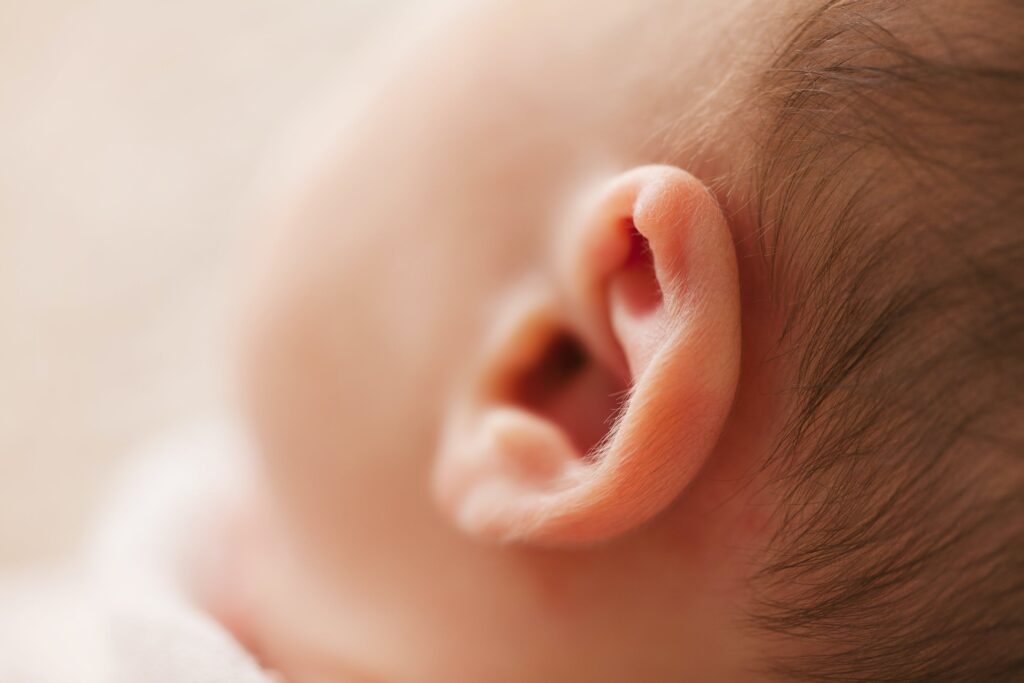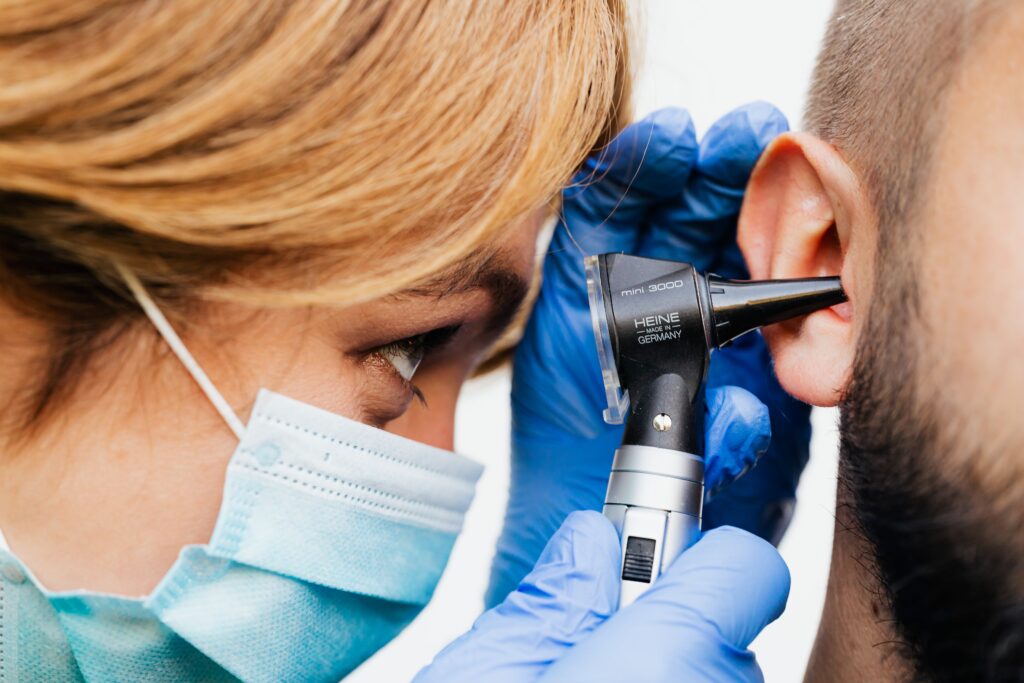It’s possible for people to ignore their ears and take hearing for granted. However, it is imperative that you provide your hearing the attention they require now, rather than waiting until a problem occurs. That entails taking proactive care of them right now. Maintaining good ear health depends on taking adequate care of your ears, which can lower your risk of ear infections and stop hearing loss. But when it comes to enhancing your ear health, it can be challenging to know where to begin.
Consider ear health right now.
Dr. Jones stated, “To put it briefly, you can take care of your ears the same way you take care of the rest of your body.” “Hygiene, lifestyle choices, and appropriate medical consultations” are ways to achieve it.
In addition, he stressed the significance of “ensuring that you identify issues and get treated or looked at before they escalate into bigger problems.”
Shield your ears from loud noises.
“As hearing loss is so common, protecting your ears from excessive noise is one of the most important things,” Dr. Jones stated. “Since we all live in an industrialized world, it’s important to protect your hearing by avoiding prolonged exposure to loud or even moderate noises.”
According to Dr. Hunter, “Most people can remember attending a concert when they were younger and leaving the event with their hearing muffled or clouded. And when that gets better, that’s called a temporary threshold shift.”
He stated, “We want to safeguard our ears so that we can prevent something similar because that is a sign of cochlear damage.”
Dr. Jones stated, “It’s really a great idea if you can keep it below 70 decibels. There is a free phone app where you can measure the decibel level.” “Thus, while it’s a great idea to wear hearing protection at concerts, hearing loss can frequently result from close-quarters activities like hair dryers, lawn mowers, and leaf blowing.”
“Moreover, your ears may be more sensitive to loud noises if you have previously had hearing loss for any reason,” he stated. “Most people are aware of the noises produced by jet engines and other industrial processes, but regular daily activities can also cause hearing loss over time.”
Certain vitamins are advantageous.
According to Dr. Jones, “some minerals like zinc, as well as vitamins A, C, and E, have been touted for their potential benefits in maintaining ear health.” However, all antioxidants are beneficial in general, especially for vascular health.
“And next to making sure that you protect your hearing from noise exposure, vascular health is probably the most significant related to the ear,” he stated. This comprises “nutritional components and antioxidant-rich, flavonoid-rich anti-inflammatory diets that would also be promoted by consuming green tea, blueberries, broccoli, and other foods.”
Dr. Jones continued, “We know that would be good for your ears as well as combat all types of inflammatory disease.”
Ears can clean themselves.

The ear canals clean themselves quite well in most cases. It’s comparable to a self-cleaning oven, according to Dr. Jones. “There’s really nothing you need to do, not even press a button. It simply occurs.
Like the skin on the rest of your body, the skin in your ear canals sheds. Furthermore, because of the structure of the ears, the skin naturally emerges from the ear canal thanks to a synchronised dance, if you will, that the ears do, according to Dr. Hunter. “The skin in your ears functions as a bucket, and it will eventually fill up if it doesn’t have a coordinated way to escape.”
He explained that “we know there’s a natural skin migration in the ear canal and that helps remove skin that had shed” and that “what comes out of our ears is a combination of dead skin and wax.”
Therefore, as long as they get water in their ears, the majority of patients’ ears can clean themselves. Dr. Hunter stated that while some people have narrow ear canals or “the outer portion of the ear canal might not line up with the inner portion, and that could prevent the wax from coming out naturally,” “they should help as long as they don’t baby the ears—they don’t protect the ears from a water perspective.”
“We do advise patients to come in and have it cleaned out in certain circumstances. However, your ears should be fine if you leave it alone, he stated.
Reattach the Q-tip.
In the article, Dr. Hunter noted that since the 1970s, “there’s actually been a warning label on the Q-tip package to not place them in your ears because of all the issues and injuries that physicians like myself have encountered over the years.” The Washington Post published an interesting article in 2016 about the history of Q-tips.
“The issue lies in the fact that, when loading a cannon from the 18th or 19th century, the powder is levelled and the projectile or ball is inserted into the cannon using what appears to be a large Q-tip,” Dr. Jones said. “You tend to push the wax down past the outer third of the ear canal where the hair is located, even though you think you’re getting a lot of wax out and you might get some up.
“And if it goes past that hair, your ear becomes plugged up with wax because there is no real way for the ear to expel cerumen.” “I’ve become more blocked up a few times, and it tends to support the concept that I need to clean my ears since you’re actually causing it rather than treating it.”
Using that, “you can clean the external part of the ear, but you run into potential problems when you start going down in the ear canal,” according to Dr. Jones.
Using peroxide can be harmless.
Peroxide is generally considered safe for use on the ear, even the middle ear, according to Dr. Jones. For instance, if you have never had ear surgery before, your eardrum is not perforated, and the purpose of the wax removal is to loosen the wax, then it is OK.
“Peroxide can usually be used to remove ear wax, and some people use over-the-counter ear products like Debrox for that purpose,” he stated. However, occasionally, people apply it to illogical purposes. For instance, peroxide will exacerbate dryness and itching in your ears since it tends to dry out the ear as well.
Look for strategies to shield against viral infections
Any upper respiratory illness that irritates the nose might result in edoema and an ear fullness sensation. According to Dr. Hunter, this may result in fluid accumulation, which may lead to an ear infection. However, practically every virus has the potential to harm the ear. There’s no way to know who is and is not prone to fluid accumulation or inner ear inflammation that results in hearing loss or balance problems.
“We always ask about a precipitating illness when patients present with a hearing loss—whether they had a cold exposure recently—because we recognise a viral infection can lead to sudden hearing loss or hearing loss, as well as dizziness,” he said, giving the example that “you can get the flu and that can affect your ears.”
Take care of your allergies
The saying “as the nose goes, so go the ears” is quite common. Therefore, you have a little amount of thickened posterior nasal drainage that passes by the eustachian tube on its way to the lower areas of the throat if you are congested or have allergies, according to Dr. Jones. It may result in mild edoema or inflammation at the eustachian tube’s origin and make you feel pressured or full.
You might even develop middle ear fluid from that kind of leakage or a severe sinus infection if it gets serious enough. It is contingent upon the severity of your underlying eustachian tube issue. However, that is definitely a possibility,” he stated. Regarding the itching in your ears, in my experience, this is usually more indicative of dry ear canals, where you may be predisposed to atopic dermatitis or seborrhoeic dermatitis. These changes can occur in the ear canal in the same way that they can occur anywhere on your skin, such as your elbows, knees, etc.
According to Dr. Jones, “topical medications like a liquid topical steroid or something like that are usually more effective in treating that and stopping the itching.”
You can erect your ears.
According to Dr. Hunter, “the most common diagnosis from an ear fullness perspective is a eustachian tube dysfunction—the tube that basically connects the ears to the nose is generally closed.” We have to pop our ears because of this when we travel and the cabin is pressurised above sea level. In order to maintain equal pressure inside the middle ear and outside the eardrum, we are opening that tube to let the cabin pressure enter the middle ear.
“It can be challenging for that tube to open in patients who have inflammation in the back of their nose from allergies or a recent cold, and that can result in that feeling of fullness—a negative pressure in the ear,” he continued. “That’s how middle ear infections arise because the negative pressure draws fluid in from the surrounding tissue, where bacteria may overproliferate and cause an ear infection.”
Identify the symptoms of hearing loss
According to Dr. Jones, “ringing in your ears could also be an indication” of hearing loss if you notice that you’re turning up the TV while everyone else around you is wondering why you’re doing so or if you find yourself having to ask people to repeat what they just said.
He remarked, “For many people, hearing loss is so subtle because it happens outside of the speech range.” The type of hearing loss you may have is either low frequency or high frequency, with little to no impact on your ability to distinguish speech and carry on a regular conversation.
Dr. Jones continued, “In those situations, perhaps the strongest indication that you might need to get your ears checked is a feeling of fullness, pressure, or ringing in the ears.
Culturally speaking, we must acknowledge that while hearing loss is a natural aspect of ageing, it is also something we may be able to regulate and manage. Better than what we previously believed, perhaps, but not flawlessly, Dr. Hunter remarked. “I always commend patients for visiting us and having that conversation.”
“Many patients and families report great benefit from hearing aids, but I recognise there are imperfect solutions,” he said. “We’ve shown that even minor hearing improvement benefits the patient, their family, and loved ones by increasing quality of life and reducing carer burden.”


